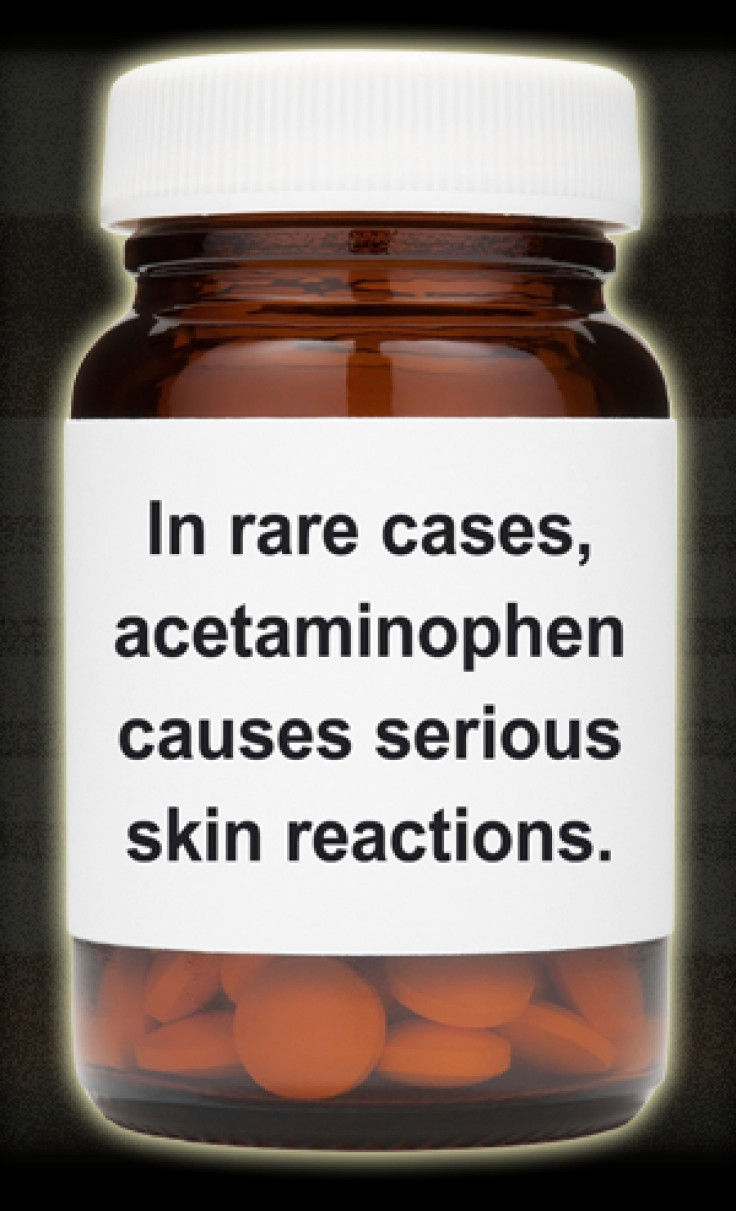Acetaminophen Warning By FDA Focuses On ‘Rare But Serious Skin Reactions’

Acetaminophen -- the fever reducer and pain reliever among the most widely consumed medicines in the U.S. that is marketed either over the counter or by prescription -- can cause rare but serious skin reactions, according to the Food and Drug Administration. “If you’ve ever had a skin reaction when taking acetaminophen, don’t take the drug again and discuss alternate pain relievers/fever reducers with your health care professional,” FDA warned Thursday.
FDA will require new warnings about these skin reactions to be added to the labels of all prescription medicines containing acetaminophen, and the agency will be working with manufacturers to get the warnings added to the labels of over-the-counter medicines containing it.
Acetaminophen is the generic name of a common active ingredient in many over-the-counter and prescription medicines, with the Tylenol brand of Johnson & Johnson (NYSE:JNJ) likely the most widely known. Acetaminophen is also available as a generic medicine. And it is combined with other medicines, not only with opioids for pain relief but also in preparations for the treatment of allergies, colds and headaches, among other conditions. It has been used by millions of people for decades, more or less safely.
However, FDA chose to add the warnings about skin reactions to products containing acetaminophen after conducting a review of the medical literature and its own database, the FDA Adverse Event Reporting System. Its FAERS search found 107 cases from 1969 to 2012 that resulted in 67 hospitalizations and 12 deaths because of rare but serious skin reactions.
Stevens-Johnson Syndrome, or SJS, and toxic epidermal necrolysis, or TEN, are the most serious skin reactions linked to acetaminophen in rare cases, FDA reported. Each generally requires hospitalization and can cause death. Those afflicted with either typically notice flulike symptoms followed by rash, blistering and, in the worst cases, extensive damage to the surface of the skin. Recovery can take weeks or months, and possible complications include blindness, changes in skin pigmentation, damage to internal organs and scarring.
FDA’s latest warning about acetaminophen comes about two years after the agency took steps to cut the risk of liver injury from acetaminophen. At that time, FDA requested all makers of prescription products to limit acetaminophen to 325 milligrams per capsule or tablet. It also required all prescription acetaminophen products to include a Boxed Warning, which is the agency’s strongest warning, used to call attention to serious risks.
Nonetheless, FDA continues to consider acetaminophen more helpful than harmful on balance. According to Dr. Sharon Hertz, deputy director of the agency’s Division of Anesthesia, Analgesia and Addiction, “FDA’s actions should be viewed within the context of the millions who, over generations, have benefited from acetaminophen.”
© Copyright IBTimes 2024. All rights reserved.












